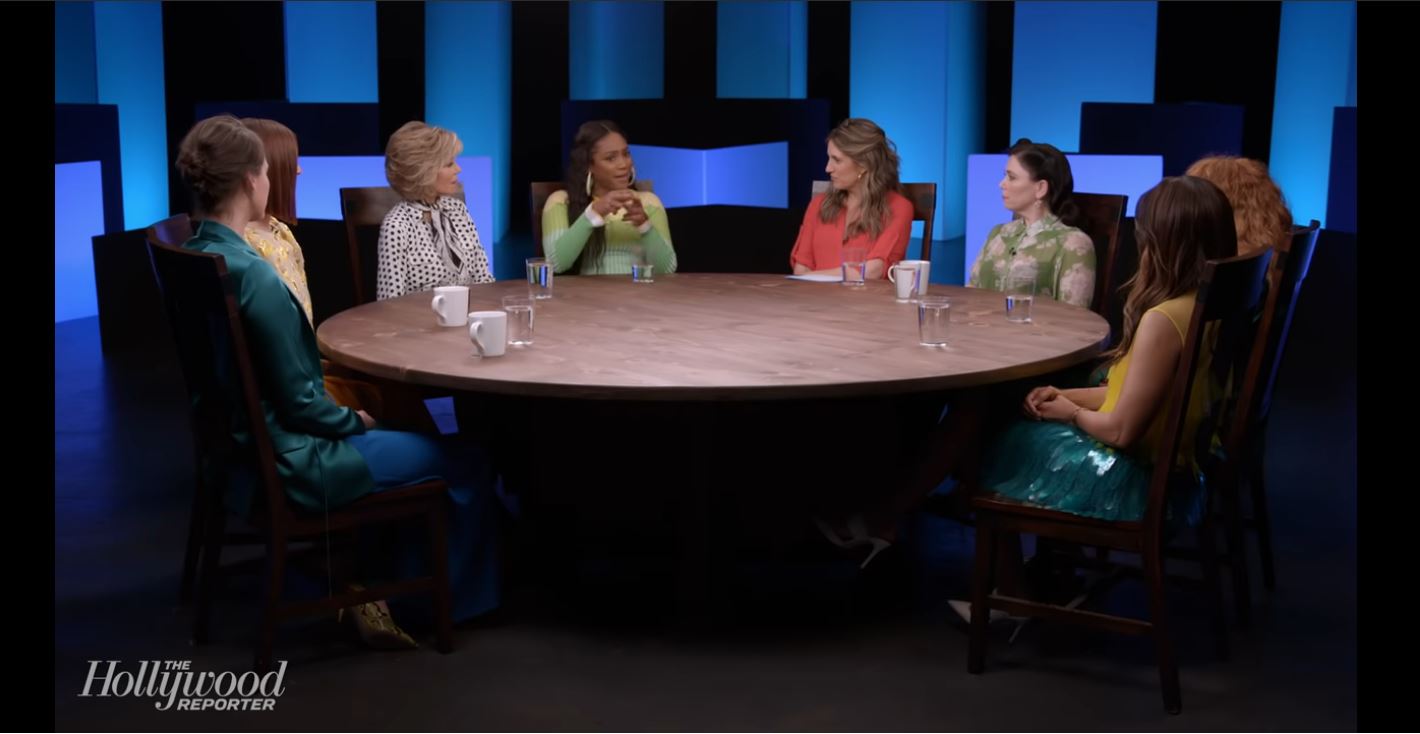Life Lessons From THR‘s Comedy Actress Roundtable
Maya Rudolph, Jane Fonda, Phoebe Waller-Bridge, and more on the secrets of being a kick-ass woman.

If we imagined a guest list for the dinner party of our dreams, it would likely include the women of The Hollywood Reporter’s Comedy Actress Roundtable. The THR roundtable is an annual interview that gathers the top actors in their respective field. This year, the panel included Jane Fonda (Grace and Frankie), Maya Rudolph (Forever), Regina Hall (Black Monday), Tiffany Haddish (The Last O.G.), Phoebe Waller-Bridge (Fleabag) and Natasha Lyonne (Russian Doll).
There are so many gems to be found in these roundtables, which feature actresses talking candidly about their career experiences and the struggles they’ve faced. And while the majority of us are not beloved television stars, there is a universality to the topics these women delve into.
The group had a lot to say about the power of saying ‘no”. So many of us have that people-pleasing gene that makes us agree to everything asked of us. We don’t want to disappoint people, so we find ourselves burnt out and overextended when we should be prioritizing our own health and needs. Waller-Bridge said,
“When I was starting out doing Crashing and Fleabag and then Killing Eve came along, I was like, ‘I have to do this. I will break myself to do this because I know the impact it could have on my career.’ I think I’m now at the stage for the first time ever where I’m actually going to take a step back and recharge and think about what I want to write about again. Because when you’re writing at that rate for that many years, you forget who you are or what you want to write about.”
This becomes doubly difficult when we’ve reached a turning point in our career and feel the need to strike while the iron is hot. Rudolph followed up by saying,
“I used to be a lot more passive aggressive about saying yes and then being unhappy and doing things that made me feel embarrassed. Even silly things like when you start to make it, especially as a comedy lady, and you get to do a fashion spread and it’s, like, ‘Now we want you to fall out of a dumpster while putting your face in a birthday cake in a beautiful gown.’ And you’re like, (nervously) ‘OK.’ So, I started learning to say no.”
The women also had strong opinions on loving your body and embracing your sexuality. When the conversation touched on the topic of nude scenes, with some of the actresses lamenting that they should have done nude scenes when they were younger:
LYONNE: I stand by that statement. I remember on Slums of Beverly Hills I was 17 and I was scared to even be in my panties. I had such a warped sense of self and fear of outside opinion that I didn’t want to open myself up to judgment. So, I felt like, if I can be this Joe Pesci tough-guy persona, I’d be keeping you at arm’s length. There’s something inherently vulnerable about “Here is my skin.”
HALL: That’s the tragedy of youth! You don’t know how good you look.
LYONNE: Right? Maya and I went to Hawaii in the ’90s and we are two lanky little tennis-playing …
RUDOLPH: We looked amazing.
LYONNE: We had visors and big Hunter S. Thompson aviators and we looked so cute.
RUDOLPH: Boobies up here (puts her hands to her eyeline).
LYONNE: Boobies up to here! (Laughter.)
HALL: That’s why you should be naked when you are young. You want to have that on film.
It was different for Fonda, a former sex symbol who is now enjoying a career resurgence thanks to Grace and Frankie. On the series, her character designs and sells sex toys for older women, and experiences an active dating life: two things we rarely see from women of a certain age onscreen.
Fonda said of the role, “[Our] culture doesn’t like people with wrinkles to be talking about sex. And kids don’t like to think about their parents doing it, either. But the fastest-growing demographic in the world is older women, and a lot of them are doing it very pleasurably. I wrote a book about it and I gave it to the writers. When I was in my 40s, I said before I die I want to be part of giving a cultural face to older women, and I can’t tell you how much feedback Lily [Tomlin] and I get from older women who say it’s given them hope — and not-so-old women who say, “I now see another way forward.”
The interview is well worth reading in its entirety, as the group talks about race, gender, and being female in a male-dominated industry. Which of these women do you find most inspiring and why?
(via The Hollywood Reporter, image: THR)
Want more stories like this? Become a subscriber and support the site!
—The Mary Sue has a strict comment policy that forbids, but is not limited to, personal insults toward anyone, hate speech, and trolling.—
Have a tip we should know? tips@themarysue.com